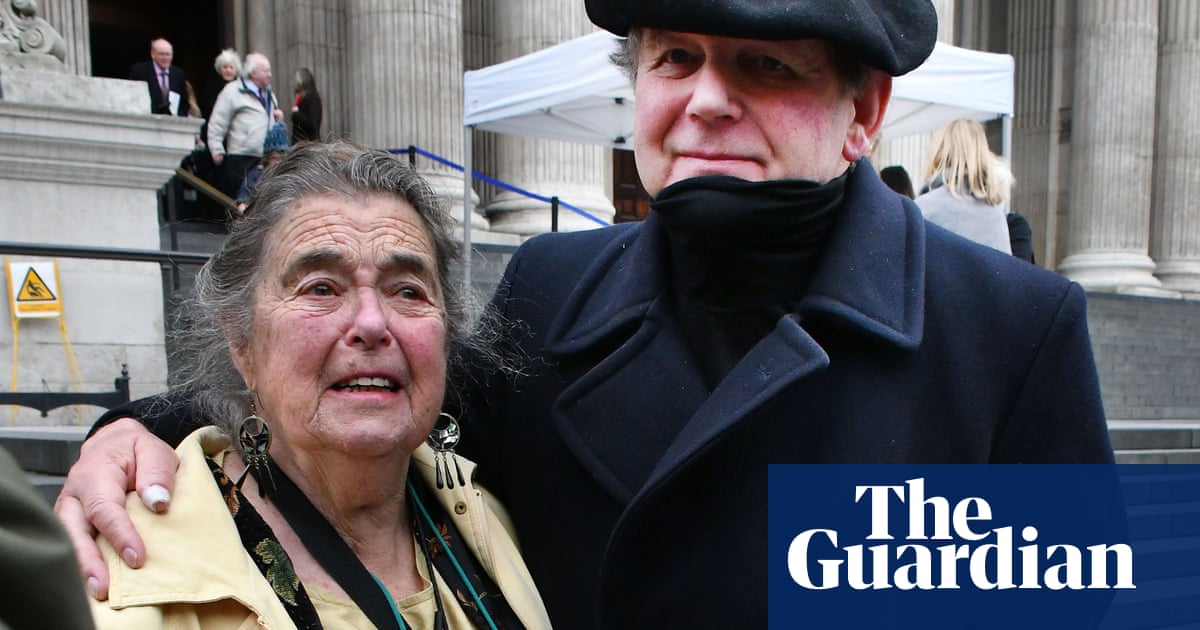It is quite rare to find a writer like Lynne Reid Banks, who tries so many different subjects, and so many different ways of writing. The author of The L-Shaped Room and The Indian in the Cupboard, who died on Thursday aged 94, was a writer I admired and liked a lot â and someone who helped me find a pathway for myself.
I have a huge admiration for the breadth of her writing. Her first novel was for adults, The L-Shaped Room. It was a great hit, and was adapted into a film. Where do you go after that? And the answer was, she didnât follow the commerce, she didnât go to Hollywood or spend time just writing film scripts. She went on writing what she cared about.
Then â thank goodness â she turned to writing childrenâs books, and again, rather quickly became immensely successful with The Indian in the Cupboard. Lynne Reid Banks wrote 48 books, but it isnât about the numbers, itâs about the fact that she wrote books that are going to be read again and again and again. Itâs about the fact she had an individual voice and she tried things out, she experimented. And itâs about the fact that she knew that, as writers for children, we have to pass on the things weâre passionate about.
Lynne took on subjects that others didnât think you ought to include in childrenâs books â she knew that if you write about these things in the right way with the right voice and you donât traumatise, then that is what literature should be for young people. My favourite of her books, and the first I read, is The Indian in the Cupboard. The depth and complexity of it is quite extraordinary. It is one of those books that crosses that ridiculous divide made between adults and children. The notion that somehow you stop being one and then become the other is nonsense, and she knew that.
Her writing displayed her extraordinary spirit â a spirit I have tried to imitate in my own work. She wrote about what she wanted to in the way that she wanted to do it, and didnât follow trends. She was was a wonderful off-piste writer, and a wonderful off-piste person as well. She broke the glass ceiling in all sorts of different ways: before I knew her, she was one of the first female news reporters on British television.
I knew her for about 40 years off and on, and âwarmâ is the first word that comes to mind when I think of her. She was wholehearted in her appreciation of others, and extremely passionate about childrenâs art and childrenâs literature.
We coincided in so many ways. She and I both felt passionately against the way the national curriculum seems to be all about testing and outcomes. If you wish to encourage children to read or paint or do drama, you have to leave room in the day for that, and room in the lives of children to express the creative side of themselves. Lynne knew that instinctively, and I think that may well have been thanks to the time she spent living and teaching on a kibbutz in Israel. She was working out in the open with children, where they were close to nature, growing their sense of the planet around them and their belonging to that planet.
after newsletter promotion
Her work there was not dissimilar to the work I do with my charity Farms for City Children, through which we give classes of children the chance to spend time on one of our farms, working with them out on the land, digging with them in the vegetable garden and helping them to lamb sheep. Lynne and I had a very close connection about the importance of the land â she felt instinctively that being in nature was something that was very good for childrenâs welfare and wellbeing. She was talking about that a long time before other people.
Fourteen years my senior, to some extent she was like an auntie to me: very encouraging, never critical. We wouldnât see each other for five or six years, and then sheâd ring up out of the blue, about something Iâd said. She gave me good advice, and I always felt that she was encouraging me a little further down some route. If I was being a bit belligerent about the way children are being taught in school, she was encouraging me to do more. I felt like I was a sort of clockwork friend of hers: when we got together, she would wind me up a bit to keep me going.
There wonât be another person who has had the extraordinary life that she had. I shall miss her a lot.
As told to Lucy Knight










